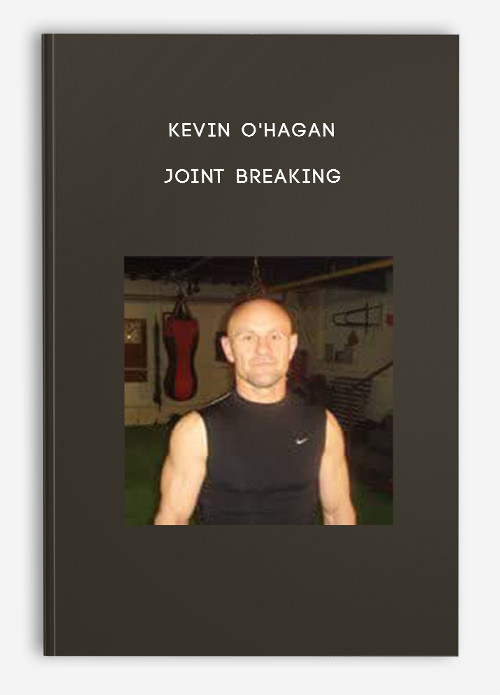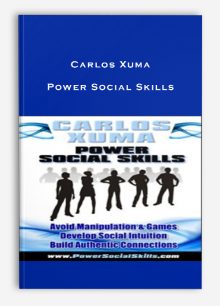Kevin O’Hagan – Joint Breaking
$25.00 $12.00

Kevin O’Hagan – Joint Breaking

Get Kevin O’Hagan – Joint Breaking on Salaedu.com
Description:
Kevin O’Hagan has been training and coaching Martial arts for 44 years to date and is still actively on the mats daily.
He is a world- renowned reality based Martial artist who holds a 7thDan black belt masters grade in Combat jujutsu.
Kevin is a highly sought-after instructor for his extensive knowledge and understanding of the combat arts. He has taught his skills all over the world.
He first started training in 1975 and established his first club in Bristol in 1982.He has taught in Bristol ever since.
Kevin is a senior instructor with the British Combat Association and the All styles Martial arts association/self- defence federation.
He also holds black belt ranks in Karate Jutsu and Goshin Jutsu.
Kevin has also in the past competed in Professional MMA and many formats of grapple and strike, submission grappling and earlier forms of no holds barred fighting.
He last fought and won in the cage in a European welterweight title eliminator at the age of 43.
He was an early pioneer of cage fighting. Opening the first ever MMA classes in 2000 in his home city of Bristol and the South West.
Kevin was also part of the training team that coached and took the first British MMA fighter to Japan to fight in Pride fighting championships.
Kevin retired actively from competitive fighting at the age of 55 in 2016 winning a silver medal in the no Gi executive division of NAGA.
Kevin is a veteran Self Protection and reality combat exponent, and this is where his main area of expertise lies.
He has trained everybody from the forces, police, security, bodyguards and NHS frontline staff to business people travelling aboard and corporate clients.
He has written several books non-fiction and fiction as well as producing his own unique training DVD’s.
Kevin has been induced into the M.A.I hall of fame as well as receiving a lifetime achievement award for his services to the Martial arts.
These days Kevin mainly teaches private clients Combat jujutsu and Self- Protection as well as running yearly seminars and workshops.
Kevin is also certified in Sports psychology and NLP techniques and coaches people in positive thinking, fear management and mental preparation through his ‘Winning minds programme.’
ABOUT
If you would like to take the steps to becoming your own bodyguard and learning Kevin’s unique style of Japanese Combat Ju Jutsu then you can expect to learn:
Street self protection against the criminal predator for male and females.
Defence training against edged weapons, blunt weapons and firearms.
Control and restraint for security personnel.
Combative ground-fighting.
Combat jujutsu.
Mental and physical conditioning for real world combat.
Anti bullying techniques for children.
Power and knockout strike development.
Kevin no longer coaches regular classes but focuses his time teaching bespoke one to one sessions, small private groups and seminars. Book him now and learn from the ‘real deal’.
Kevin O hagan-33.jpg
Kevin O hagan-16.jpg
THE COMPONENTS OF JAPANESE COMBAT JUJUTSU.
The grading syllabus can be split into two elements. Mastering the techniques that make up the art of jujutsu and applied combative application for self- defence. To be graded correctly in Japanese combat jujutsu you must have both of these elements trained.
My syllabus runs from red belt to black belt and above. Each grade gets progressively more demanding as new techniques and advanced applications are learnt.
The physical components of the art can be broken down in to sub sections. They are as follows:
ATEMI -WAZA – Striking and manipulation of the bodies vital points and nerve centres.
NAGE-WAZA- Throws and takedowns.
KANSETSU-WAZA -Joint locks, immobilisations.
TAIHO -WAZA -Arresting and control techniques.
KOTSU HO WAZA – Bone breaking.
SHIME -WAZA – Choking and strangulation.
NEWAZA- ground fighting.
KOBO-WAZA -Weapons techniques.
Most combat jujutsu techniques will incorporate one or more of these components combined.
80% of its techniques will be standing and 20% will be on the ground unlike modern day Brazilian jujutsu.
The reason for this was that original battlefield jujutsu was fought in armour and with weapons. Unarmed techniques only came into play if a weapon was lost, broken or both party’s clashed into a grapple.
Going to the ground would have been extremely dangerous.
This ideology holds truth for the combative self defence techniques of the art were again going to the ground would not be your first option in the street. We are not having a sporting grappling match with rules and regulations. The street is an unpredictable environment were the only rule is there are no rules.
Many of the sporting techniques of modern-day jujutsu would not translate well to the street, where weapons and multiple attacks are prevalent.
Additional techniques taught are of a cerebral nature.
Warrior mindset
Fear control and adrenal responses
The anatomy of violence
Streetwise awareness and tactics
If you donot have the time or inclination to learn the whole system or you are not interested in belt grades you can just learn the combative side of the art for self- defence. This may take the form of blocks of 4,6.8.10.12 or more lessons to suit your needs and goals. If you successful complete your course, you will be issued with a signed certificate as evidence that you have done it.
Self Help – Lifestyle online course
More information about Self Help:
Self-help or self-improvement is a self-guided improvement—economically, intellectually, or emotionally—often with a substantial psychological basis.
Many different self-help group programs exist, each with its own focus, techniques, associated beliefs, proponents and in some cases, leaders.
Concepts and terms originating in self-help culture and Twelve-Step culture, such as recovery, dysfunctional families, and codependency have become firmly integrated in mainstream language.
Self-help often utilizes publicly available information or support groups, on the Internet as well as in person, where people in similar situations join together.
From early examples in self-driven legal practice and home-spun advice, the connotations of the word have spread and often apply particularly to education, business,
psychology and psychotherapy, commonly distributed through the popular genre of self-help books.
According to the APA Dictionary of Psychology, potential benefits of self-help groups that professionals may not be able to provide include friendship,
emotional support, experiential knowledge, identity, meaningful roles, and a sense of belonging.
More Course: SELF HELP – LIFESTYLE
Outstanding Course:Good Energy Worldwide and Eric Thomas team up on the Trucking Digital Training Portal!
1 review for Kevin O’Hagan – Joint Breaking
Add a review Cancel reply
Related products
Internet Marketing Courses
Anthony Robbins – Date With Destiny Leadership Manual December 2013
HEALTH - FITNESS - LIFESTYLE - MEDICAL
Internet Marketing Courses










king –
“We encourage customers to contact Customer Service and think twice before making payment. All course contents will be similar to what is from the author.”
Thank you!